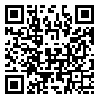BibTeX | RIS | EndNote | Medlars | ProCite | Reference Manager | RefWorks
Send citation to:
URL: http://mjiri.iums.ac.ir/article-1-3010-en.html

 , Arash Tehrani Banihashemi
, Arash Tehrani Banihashemi 
 , Homa Asgharifard
, Homa Asgharifard 
 , Mehran Bahramian
, Mehran Bahramian 
 , Hamid Reza Baradaran
, Hamid Reza Baradaran 
 , Mohammad E Khamseh
, Mohammad E Khamseh 

Background: Health literacy is the ability to obtain, read, understand and use healthcare information to make appropriate health decisions and follow instructions for treatment. The aim of this study was to identify the effect of various factors on health literacy in patients with diabetes.
Methods: This was a cross-sectional observational study of 407 Iranian patients older than 15 years of age with type 1 and 2 diabetes identified from the Diabetes Clinic affiliated to the Institute of Endocrinology and Metabolism (IEM) of Iran University of Medical Sciences. We assessed patients' health literacy using the Persian version of Test of Functional Health Literacy in Adults (TOFHLA) questionnaire.
Results: The mean age of the patients was 55.85 years, and 251 (61.7%) of them were female. Females had lower educational level compared to males (p< 0.001). In total, 18.2%, 11.8% and 70.0% of the participants had adequate, marginal and inadequate health literacy scores, respectively. Tukey’s post hoc test revealed that employed patients enjoyed a high health literacy level compared to housekeepers (p< 0.001).
Conclusion: Health literacy score in Iranian patients with diabetes seems low. Therefrom effective interventions should be designed and implemented for this group of patients to improve diabetes outcomes.
| Rights and permissions | |
 |
This work is licensed under a Creative Commons Attribution-NonCommercial 4.0 International License. |



